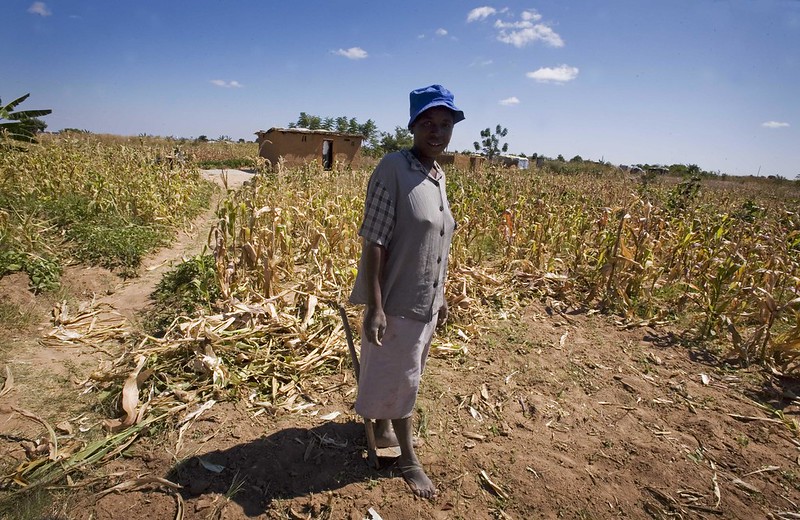The COVID-19 crisis has highlighted the stark reality of Africa’s extreme dependence on imports to feed our populations. In West Africa, 40% of the rice consumed is imported; African countries do not produce enough processed agricultural products to sustain their populations, with the three highest agricultural imports being wheat, rice, and vegetable oil; and local agriculture across the continent is dependent on imported inputs for production and therefore dependent on foreign exchange.
For Africans to chart a course away from extreme dependence on food imports prevalent now, the policies and thinking of early post-independence Africa—countries like Ghana and Tanzania —and international peasant movements, like La Via Campesina—offer a wealth of lessons.
As key countries adopted restrictive measures in their attempts to manage the spread of COVID-19—including the closure of air, land, and sea borders, and agricultural export restrictions—Africa is seeing a significant disruption of the supply chain due to the resulting decrease in the volume of imports. If exporters of cereals and staple foods, also affected by the pandemic, were to suddenly cease production, the many African countries dependent on these imports would be unable to feed their populations.
The monoculture cash crop and export agriculture system that pervades in Africa is a colonial legacy that has, over time, been maintained by the global neoliberal trade regime, trapping countries in a vicious cycle of dependence. By primarily exporting low value, unprocessed agricultural products with volatile prices in the global market, countries often fall short on the foreign exchange necessary for purchasing essential food stuff, and they are forced to turn to predatory conditional World Bank/International Monetary Fund (WB/IMF) loans that further undermine agricultural diversification and modernization by pushing for reductions of agricultural subsidies and price support policies for small farmers.
As well as impacting government revenues and foreign currency resources, the fragility of Africa’s agricultural sector directly impacts farmers’ incomes. Curfews, quarantine, and the closures of markets, schools, restaurants, and businesses have completely disrupted local supply chains, and producers have found themselves stuck with perishable food with no market prospects. This has highlighted serious shortcomings in terms of logistics, transportation, and the isolation of some marginalized regions. The resulting drop in the income of producers, most of whom are small farmers, has also jeopardized future harvests due to the lack of inputs.
The COVID-19 crisis pushes us to reflect on the agricultural production in Africa, highlighting the urgent need to develop more sustainable food systems and more resilient family farming systems. But this is not a new debate. In the period immediately after independence in the 1960s and 1970s, different governments on the continent designed and implemented policies to achieve what was known at the time as food self-sufficiency.
Governments led by figures like Kwame Nkrumah and Julius Nyerere pursued policies to feed their populations sustainably from their own production and also develop a strong agricultural sector that could boost decent jobs. Self-sufficiency was seen as integral to sovereignty as they recognized economic dependence allowed their former colonizers to exert power over their domestic political space. Policies included setting up agricultural cooperatives and state farms; establishing storage and distribution facilities; expanding grants and facilities for agricultural research; and land reform including establishing communal rights.
The drive for self-sufficiency was supplanted through structural adjustment policies in the 1980s—which made WB/IMF loans conditional on the “reduction or removal of export taxes, quotas, and government controls, reduction of import tariffs and removal of import restrictions, removal of internal market regulations and private-sector restrictions; and reduction in public production and infrastructure services”—and later the notion of food security in the 1990s. Rather than emphasize the importance of agricultural production to meet the needs of a specific state, such as enough foodstuffs to feed its population, food security emphasizes access to affordable food, whether it’s imported or otherwise. For example, Singapore, classified as one of the most food secure countries, only produces 10% of its own consumer products. It is a neoliberal concept that encourages import substitution in lieu of strong domestic agricultural production, the weakness of which is evident today.
In contrast, the international peasant movement, La Via Campesina, call for food sovereignty—the right of the people to healthy and culturally appropriate food produced with sustainable methods, prioritizes local agricultural production to feed the population, ensure peasants’ access to land, natural resources, seeds, and loans, and protect the rights of small farmers to produce and consumers to decide what they want to consume. This notion encourages and depends on diversified family and peasant agriculture as opposed to industrial agriculture. Family agricultural systems are based on short cycles, and they have the capacity to both feed the family and also supply local markets, prioritize sustainable agricultural practices that use traditional knowledge, and build on recent ecological innovations. Family agriculture is the predominant agricultural system in African countries, but it is oriented towards monoculture production for export at the expense of production for domestic consumption and it is not effectively linked to other sectors in the economy.
In the aftermath of COVID-19, it is critical African countries diversify and improve productive capacities and create economic opportunities for small-scale producers. This includes adopting targeted policies that guarantee access to vital inputs for agriculture such as finance, land, and technology, and rethink resource management, including water, which is in competition between extractive industries and agriculture. It is also clear we need to revert to policies oriented towards bolstering the smallholder agricultural economy that seeks to improve their technical and material production conditions, like access to technology, finance, and land.
When we talk about technology, of course this includes all irrigation services, extension services, training, technical support services which have, under structural adjustment and other neoliberal policies, been drastically reduced. It is important to shift back to active investment and financing policies in the sector and focus on processing agricultural products in Africa so that the added value remains on the continent. This will also help us develop more productive sectors, create value-added jobs, and foster a vibrant local and regional economy while linking agriculture to other key sectors.
In recent years, Senegal and Mali have included food sovereignty in their national platforms, and various continental and regional initiatives have emerged, including from the Economic Community of West African States. Food sovereignty is also referenced in the Egyptian constitution. However, the continuing growth of food imports in Africa highlights the gaps in these models and the profound constraints posed by global capital and the free trade agreements and neoliberal economic institutions that leave it unchecked. Early post-independence governments in Africa had a clarity around the critical links between food self-sufficiency and national sovereignty that has been eroded by decades of neoliberal ideological onslaught. With COVID-19 and the climate crisis disrupting value chains and escalating price volatility, and concepts like food security simply repackaging food dependence, early post-independence policies offer an anchor for contemporary efforts.
Jihen Chandoul is co-founder of the L’Observatoire Tunisien de l’Economie and a member of the Post-Colonialisms Today Working Group at Africa Is A Country.
This article was originally published on Africa Is a Country.




